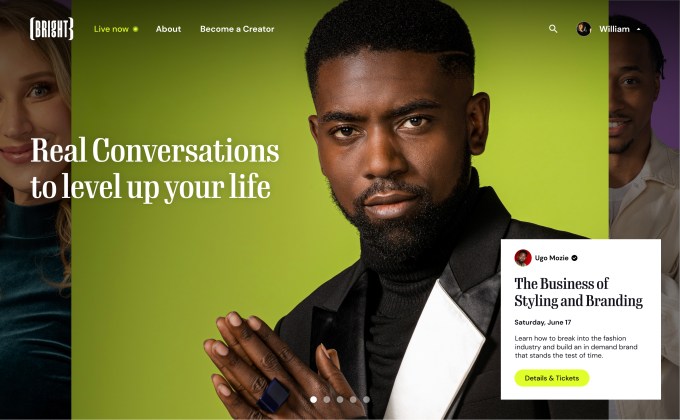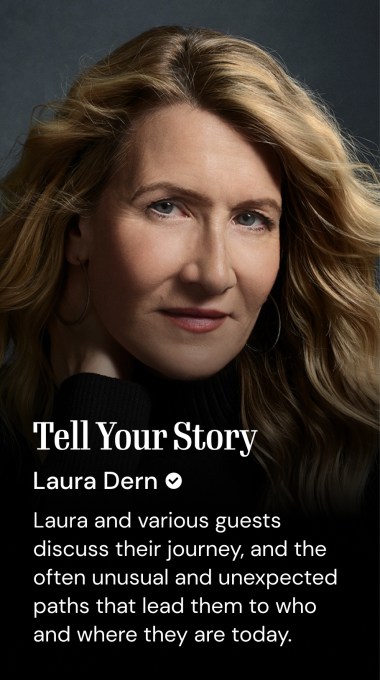Personalized nutrition startup Zoe — named not for a person but after the Greek word for ‘life’ — has topped up its Series B round with $20M, bringing the total raised to $53M.
The latest close of the B round was led by Ahren Innovation Capital, which the startup notes counts two Nobel laureates as science partners. Also participating are two former American football players, Eli Manning and Ositadimma “Osi” Umenyiora; Boston, US-based seed fund Accomplice; healthcare-focused VC firm THVC and early stage European VC, Daphni.
The U.K.- and U.S.-based startup was founded back in 2017 but operated in stealth mode for three years, while it was conducting research into the microbiome — working with scientists from Massachusetts General Hospital, Stanford Medicine, Harvard T.H. Chan School of Public Health, and King’s College London.
One of the founders, professor Tim Spector of King’s College — who is also the author of a number of popular science books focused on food — became interested in the role of food (generally) and the microbiome (in particular) on overall health after spending decades researching twins to try to understand the role of genetics (nature) vs nurture (environmental and lifestyle factors) on human health.
Zoe used data from two large-scale microbiome studies to build its first algorithm which it began commercializing last September — launching its first product into the U.S. market: A home testing kit that enables program participants to learn how their body responds to different foods and get personalized nutrition advice.
The program costs around $360 (which Zoe takes in six instalments) and requires participants to (self) administer a number of tests so that it can analyze their biology, gleaning information about their metabolic and gut health by looking at changes in blood lipids, blood sugar levels and the types of bacteria in their gut.
Zoe uses big data and machine learning to come up with predictive insights on how people will respond to different foods so that it can offer individuals guided advice on what and how to eat, with the goal of improving gut health and reducing inflammatory responses caused by diet.
The combination of biological responses it analyzes sets it apart from other personalized nutrition startups with products focused on measuring one element (such as blood sugar) — is the claim.
But, to be clear, Zoe’s first product is not a regulated medical device — and its FAQ clearly states that it does not offer medical diagnosis or treatment for specific conditions. Instead it says only that it’s “a tool that is meant for general wellness purposes only”. So — for now — users have to take it on trust that the nutrition advice it dishes up is actually helpful for them.
The field of scientific research into the microbiome is undoubtedly early — Zoe’s co-founder states that very clearly when we talk — so there’s a strong component here, as is often the case when startups seek to use data and AI to generate valuable personalized predictions, whereby early adopters are helping to further Zoe’s research by contributing their data. Potentially ahead of the sought for individual efficacy, given so much is still unknown around how what we eat affects our health.
For those willing to take a punt (and pay up), they get an individual report detailing their biological responses to specific foods that compares them to thousands of others. The startup also provides them with individualized ‘Zoe’ scores for specific foods in order to support meal planning that’s touted as healthier for them.
“Reduce your dietary inflammation and improve gut health with a 4 week plan tailored to your unique biology and life,” runs the blurb on Zoe’s website. “Built around your food scores, our app will teach you how to make smart swaps, week by week.”
The marketing also claims no food is “off limits” — implying there’s a difference between Zoe’s custom food scores and (weight-loss focused) diets that perhaps require people to cut out a food group (or groups) entirely.
“Our aim is to empower you with the information and tools you need to make the best decisions for your body,” is Zoe’s smooth claim.
The underlying premise is that each person’s biology responds differently to different foods. Or, to put it another way, while we all most likely know at least one person who stays rake-thin and (seemingly) healthy regardless of what (or even how much) they eat, if we ate the same diet we’d probably expect much less pleasing results.
“What we’re able to start scientifically putting some evidence behind is something that people have talked about for a long time,” says co-founder George Hadjigeorgiou. “It’s early [for scientific research into the microbiome] but we have shown now to the world that even twins have different gut microbiomes, we can change our gut microbiomes through diet, lifestyle and how we live — and also that there are associations around particular [gut] bacteria and foods and a way to improve them which people can actually do through our product.”
Users of Zoe’s first product need to be willing (and able) to get pretty involved with their own biology — collecting stool samples, performing finger prick tests and wearing a blood glucose monitor to feed in data so it can analyze how their body responds to different foods and offer up personalized nutrition advice.
Another component of its study of biological responses to food has involved thousands of people eating “special scientific muffins”, which it makes to standardized recipes, so it can benchmark and compare nutritional responses to a particular blend of calories, carbohydrate, fat, and protein.
While eating muffins for science sounds pretty fine, the level of intervention required to make use of Zoe’s first at-home test kit product is unlikely to appeal to those with only a casual interest in improving their nutrition.
Hadjigeorgiou readily agrees the program, as it is now, is for those with a particular problem to solve that can be linked to diet/nutrition (whether obesity, high cholesterol or a disease like type 2 diabetes, and so on). But he says Zoe’s goal is to be able to open up access to personalized nutrition advice much more widely as it keeps gathering more data and insights.
“The idea is, as always, we start with a focused set of people with problems to solve who we believe will have a life-changing experience,” he tells TechCrunch. “At this point we are not trying to create a product for everyone — and we understand that that has limitations in terms of how much we scale in the beginning. Although even still within this focused group of people I can assure you there’s tonnes of people!
“But absolutely the whole idea is that after we get a first [set of users]… then with more data and with more experience we can simplify and start making this simpler and more accessible — both in terms of its simplicity and also it’s price. So more and more people. Because at the end of the day everyone has this right to be able to optimize and understand and be in control — and we want to make that available to everyone.
“Regardless of background and regardless of socio-economic status. And, in fact, many of the people who have the biggest problems around health etc are the ones who have maybe less means and ability to do that.”
Zoe isn’t disclosing how many early users it’s onboarded so far but Hadjigeorgiou says demand is high (it’s currently operating a wait-list for new sign ups).
He also touts promising early results from interim trial with its first users — saying participants experienced more energy (90%), felt less hunger (80%) and lost an average of 11 pounds after three months of following their AI-aided, personalized nutrition plan. Albeit, without data on how many people are involved in the trials it’s not possible to quantify the value of those metrics.
The extra Series B funding will be used to accelerate the rollout of availability of the program, with a U.K. launch planned for this year — and other geographies on the cards for 2022. Spending will also go on continued recruitment in engineering and science, it says.
Zoe already grabbed some eyeballs last year, as the coronavirus pandemic hit the West, when it launched a COVID-19 symptom self-reporting app. It has used that data to help scientists and policy makers understand how the virus affects people.
The Zoe COVID-19 app has had some 5M users over the last year, per Hadjigeorgiou — who points to that (not-for-profit) effort as an example of the kind of transformative intervention the company hopes to drive in the nutrition space down the line.
“Overnight we got millions and millions of people contributing to help uncover new insights around science around COVID-19,” he says, highlighting that it’s been able to publish a number of research papers based on data contributed by app users. “For example the lack of smell and taste… was something that we first [were able to prove] scientifically, and then it became — because of that — an official symptom in the list of the government in the U.K.
“So that was a great example how through the participation of people — in a very, very fast way, which we couldn’t predict when we launched it — we managed to have a big impact.”
Returning to diet, aren’t there some pretty simple ‘rules of thumb’ that anyone can apply to eat more healthily — i.e. without the need to shell out for a bespoke nutrition plan? Basic stuff like eat your greens, avoid processed foods and cut down (or out) sugar?
“There are definitely rules of thumb,” Hadjigeorgiou agrees. “We’ll be crazy to say they’re not. I think it all comes back to the point that although there are rules of thumb and over time — and also through our research, for example — they can become better, the fact of the matter is that most people are becoming less and less healthy. And the fact of the matter is that life is messy and people do not eat even according to these rules of thumb so I think part of the challenge is… [to] educate and empower people for their messy lives and their lifestyle to actually make better choices and apply them in a way that’s sustainable and motivating so they can be healthier.
“And that’s what we’re finding with our customers. We are helping them to make these choices in an empowering way — they don’t need to count calories, they don’t need to restrict themselves through a Keto [diet] regime or something like that. We basically empower them to understand this is the impact food has on your body — real time, how your blood sugar levels change, how your bacteria change, how your blood fat levels changes. And through that empowerment through insight then we say hey, now we’ll give you this course, it’s very simple, it’s like a game — and we’ll given you all these tools to combine different foods, make foods work for you. No food is off limits — but try to eat most days a 75 score [based on the food points Zoe’s app assigns].
“In that very empowering way we see people get very excited, they see a fun game that is also impacting their gut and metabolism and they start feeling these amazing effects — in terms of less hunger, more energy, losing weight and over time as well evolving their health. That’s why they say it’s life changing as well.”
Gamifying research for the goal of a greater good? To the average person that surely sounds more appetitizing than ‘eat your greens’.
Though, as Hadjigeorgiou concedes, research in the field of microbiome — where Zoe’s commercial interests and research USP lie — is “early”. Which means that gathering more data to do more research will remain a key component of the business for the foreseeable future. And with so much still to be understood about the complex interactions between food, exercise and other lifestyle factors and human health, the mission is indeed massive.
In the meanwhile, Zoe will be taking it one suggestive nudge at a time.
“Sugar is bad, kale’s great but the whole kind of magic happens in the middle,” Hadjigeorgiou goes on. “Is oatmeal good for you? Is rice good for you? Is wholewheat pasta good for you? How do you combine wholewheat pasta and butter? How much do you have? This is where basically most of our life happens.
“Because people don’t eat ice-cream the whole day and people don’t eat kale the whole day. They eat all these other foods in the middle and that’s where the magic is — knowing how much to have, how to combine them to make it better, how to combine it with exercise to make it better? How to eat a food that doesn’t dip your sugar levels three hours after you eat it which causes hunger for you. Theses are all the things we’re able to predict and present in a simple and compelling way through a score system to people — and in turn help them [understand their] metabolic response to food.”







